|
Sheep milk: A pertinent functional food
Arpita Mohapatra, Ajay Kumar Shinde, Raghvendar Singh Abstract Modern human diet and changes in lifestyle are emerging as a challenge in developing countries resulting to endless ailments. Thus, in modern spectra of human health, bioactive foods play a pivotal role. Under the umbrella of food and nutrition security, functional dairy foods have become the need of the hour. Sheep milk is one of the functionally active dairy foods and it is also considered as nutritional powerhouse. The beneficial role of sheep milk results from its fatty acid, immunoglobulin and non-immune protein contents. In human gut, milk proteins turn into excellent source of bioactive peptides with antioxidative, antimicrobial, antihypertensive, immunomodulatory and antithrombotic role. It is also used in anti-ageing formulations and cosmetic soap preparations to soothe psoriasis and skin eczema like chronic conditions. The unique physicochemical and biochemical properties of sheep milk also include prebiotics and probiotics which make it perfect functional food for human health promotion and disease risk reduction. The milk from Indian sheep is relished by the shepherds and their households. They claim that it has many health benefits, but it is an untapped area by the Indian researchers. The major challenge in Indian prospect is non availability of dairy sheep breed, but their milk functional potential cannot be ignored. This review is focused on worldwide work done on sheep milk for its unique functional characteristics. Keywords Sheep milk; Milk composition; Functional food; Bioactive peptides READ MORE
0 Comments
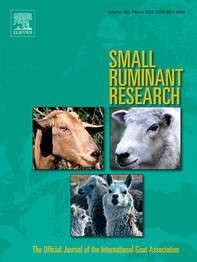 Contribution of small ruminants to food security for Ethiopian smallholder farmers Volume 184, March 2020, 106064 Hiwot Desta Wodajo, Biruk Alemu Gemeda, Wole Kinati, Annet Abenakyo Mulem, Anouka van Eerdewijk, Barbara Wieland Abstract This study investigates how and to what extent arguments related to food security influence preference of livestock species for women and men. Data was collected in four regions of Ethiopia through 92 focus group discussions (FGD) in communities where small ruminant production is common, Using a gender sensitive study designs, 23 FGDs were held separately with men, women and youth (male and female), and through a household survey involving 217 male and 212 women. Qualitative analysis was conducted to extract reasons given to explain the importance of livestock. Reasons related to food security were mapped to the four dimensions underpinning food security—accessibility, availability, nutritional value and stability. All FGDs considered sheep the most important livestock species, followed by cattle, with women allocating higher scores to sheep than men. All four dimensions of food security came up in statements explaining the importance of species but with variations across species. Interestingly, food security related arguments were most prevalent for goats followed by poultry. Of reasons given by women concerning the importance of goats, 78 % were related to food security with all four dimensions represented, and 52 % for poultry with two dimensions (availability and nutritional value). Answers from men especially had a stronger focus on economic reasons directly linked to income generation. Nevertheless, 64 % of men’s arguments for goats were related to food security. For sheep however, women only scored higher for arguments related to availability. When investigating purpose of small ruminant production at household level through a household survey, the importance of small ruminants for food security were confirmed; however, gender differences were less apparent. Being able to sell animals at short notice was the main reason for keeping small ruminants for both women and men followed by meat and milk for home consumption. Women’s argument for prioritizing selling were accessibility. For men, key arguments for selling were related to availability. For meat and milk their nutritional value was an important argument. Comparing agroecologies, accessibility (selling) was ranked top in highland areas and nutritional value (milk) was most important in lowland areas. In conclusion, this study provides much needed evidence on how small ruminants contribute to different dimensions of food security and are promising entry points targeting women to improve food and nutritional security by providing adequate animal source foods in a household. To read the entire article, visit SRR Associate Editor for Statistics 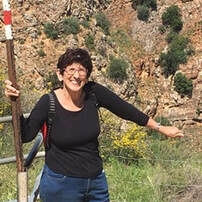 Hillary Voet studied at the Hebrew University of Jerusalem, attaining a B.Sc. in Mathematics and Statistics and an M.Sc. and Ph.D. in Statistics. She continued as a lecturer and senior lecturer at the Hebrew University Faculty of Agricultural, Food and Environmental Studies, teaching a wide range of courses in statistics and SAS programming to undergraduate and graduate students. She also gave courses in statistical methodology to graduate students at the Weizmann Institute of Science. In addition to teaching, she assisted students and faculty members in planning experiments and analyzing data. Her main areas of expertize were agricultural economics, dairy science, human nutrition, horticulture, biological control, and plant protection. She also provided statistical consultation to researchers and students from the Weizmann Institute, specializing in analysis and interpretation of data in Genetics, Biology, Bioinformatics, and Neurobiology. She has worked for over 30 years with agricultural production boards in survey design and sampling. She has also consulted and provided data analysis for clinical and preclinical studies with physicians from various hospitals in Israel and pharmaceutical and biotech companies. Currently, she provides statistical consultation and support to researchers and students at the Volcani ARO. Associate Editor for Nutrition  Dr. Raul Bodas holds a B.Sc. and a Ph.D. title in Veterinary Science, specialty Animal Production from the University of León (Spain). He spent one year as a PostDoc at the Division of Farm Animal Science (University of Bristol, UK). He worked as a lecturer for the University of Valladolid (Spain) and as a researcher at the Spanish National Research Council (CSIC). Currently, he is a researcher in the Livestock Research Area with the Agrarian Technological Institute of Castille and Leon (ITACyL, Spain). He is a member of the Spanish Society for the Study of Sheep and Goats (SEOC), the Interprofessional Association for Agricultural Development (AIDA), the American Society of Animal Science (ASAS), and the European Federation of Animal Science (EAAP). Raul’s fields of expertise and interest are the interaction between ruminant feeding and production systems and their impact on product quality (meat, milk), environmental impact, efficient use of resources and animal welfare. He has also been involved in many National and European public funded projects, contracts with enterprises or the administration. Raul is the co-author of around 60 JCR scientific papers, 25 peer-reviewed papers, 3 book chapters, 30 informative papers and more than 60 communications to national and international conferences. He has tutored 5 final degree projects, 3 MSc and 1 Ph.D. thesis. He also likes to collaborate in the review of scientific papers, projects, and proposals whenever his workload and editing duties allow. ResearcherID: H-3094-2015 Scopus Author ID: 22949727000 https://orcid.org/0000-0001-9736-7041 https://scholar.google.es/citations?user=m6Ha6o8AAAAJ&hl=es. Associate Editor for Genetics  Dr. J.N.B. Shrestha retired as Research Scientist in the Dairy and Swine Research and Development Centre, Agriculture and Agri-Food Canada, Quebec, Canada, and Adjunct Professor in the Department of Animal Science, University of Manitoba, Winnipeg, Manitoba, Canada. He obtained professional degrees from U.P. Agricultural University, India (BVSc & AH; 1966), and from University of Minnesota, USA (MS and Ph.D.; 1970 and 1973), followed by Postdoctoral research (1973-75) at the University of Minnesota and National Research Council of Canada. His area of specialization has been in Animal Breeding and Genetics, Reproduction, Production and Conservation of Domestic animal diversity. He has supervised numerous MS and Ph.D. students, as well as authored and co-authored more than 200 scientific, technical and popular papers on long-term sheep, swine and poultry breeding, development of reproduction and molecular technologies to enhance productivity, and the preservation of domestic animals. Dr. Shrestha also participated in International Conferences held in various countries as keynote speaker, chaired sessions and presented scientific papers. Associate Editor for Meat  Edi Piasentier is Professor of Animal Husbandry in the Department of Agricultural, Food, Environmental and Animal Sciences at the University of Udine. Piasentier serves as director of the University’s Experimental Farm ‘A. Servadei’ and he is the coordinator of the ‘Livestock Farming and Food Quality’ research group at the University of Udine, where he is also course convenor in the graduate and postgraduate programs of Animal Sciences. He is a member of the scientific committee of the doctorate programme in Agricultural Sciences and Biotechnologies, and he has been the first supervisor for 12 Ph.D. students in different aspects of meat quality research, from molecular processes to consumer perception. He is the author of more than 320 publications; his articles have appeared in journals such as Meat Science, Animal Science, Food Chemistry and Food Quality and Preference. His research interests mainly focus on evaluation and modification of the perceived quality of and traceability of animal-source foods. He has applied his expertise in sensory analysis and stable isotope ratio analysis in the study of products from several livestock species, including small ruminants. He has collaborated with research groups in Europe, US, Asia, and Africa. He is a founding member of the Italian Society of Sensory Science. Associate Editor for Health and Welfare  Nurit Argov-Argaman graduated in Animal Science from the Faculty of Agriculture of the Hebrew University of Jerusalem, Israel. After a postdoc fellowship in the Food Science and Technology department at UC Davis, she joined as a faculty in the Animal Science Department of the Hebrew University of Jerusalem, specializing in lactation physiology and metabolism. Dr. Argov-Argaman is actively engaged and leading research on the metabolic and molecular pathways regulating milk composition, with a special interest in milk lipids, including but not limited to fatty acids, polar lipids and glycol-conjugates. Her group conducts in vivo studies on various mammalian species, including bovine, caprine, ovine, mice and human to understand how to elevate the content of bioactive molecules in milk. The underlying molecular, biochemical and metabolic regulation of milk composition is studied in in vitro system of mammary epithelial cells, employing metabolic, biochemical and biophysical approaches. Her group is also leading the development of a sustainable approach to induce production and improve milk quality by studying the interaction between genetic background and diet of dairy farm animals. Of special focus is the dietary source of plant secondary metabolites which may help to maintain productivity under stressful conditions such as energy balance, heat stress, and water shortage. Associate Editor for Health and Welfare  Dr. M.S.A. Kumar earned his veterinary degree (BVSc) and subsequently a master’s degree (MVSc) in anatomy with University Gold Medals from the Mysore Veterinary College, in Bangalore, India. He was a dairy cattle veterinarian for three years and went to Nigeria to teach veterinary anatomy at the Ahmadu Bello University for two years and also served as an external examiner for anatomy at the University of Nigeria. He joined Kansas State University to earn an MS degree in veterinary physiology and a Ph.D. degree from the University of Florida in neuroendocrinology. He taught anatomy and surgical anatomy as well as renal physiology at the University of Florida and moved to Boston to join the Veterinary College associated with Tufts University. He has been teaching and directing the veterinary anatomy program at Tufts University for three-plus decades, and maintained an active lab conducting research on neurochemistry. Dr. Kumar published extensively in the field of neuroscience and also published two textbooks on canine anatomy (Linus Learning Publishers, NY). He is currently a professor of anatomy in the department of medical education, Tufts University School of Medicine, Boston. 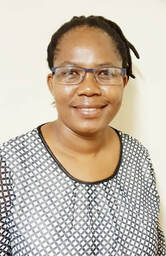 Associate Editor for Reproduction Prof. K.C. Lehloenya is Associate Professor in the Department of Agriculture, University of Zululand, KwaZulu-Natal province, South Africa. She teaches various physiology and animal science subjects. To date, she supervised 16 postgraduate students to completion in reproduction and production physiology. Her specialization is in reproductive physiology and utilization of assisted reproduction technologies in farm animals to speed up the genetic progress and conservation of valuable genetic material. She is currently focused on combining specific nutrients (antioxidants) and molecular biology to improve livestock production using assisted reproductive technologies such as estrous synchronization, artificial insemination, in vitro embryo production and gametes cryopreservation. She visited and collaborated with international researchers from University of Florida (USA), INIA (Spanish National Institute for Agricultural and Food Research and Technology, Spain), AGRIS (Agricultural Research Agency of Sardinia, Italy). She authored and co-authored numerous papers on in vitro fertilization, estrous synchronization, multiple ovulation and embryo transfer, semen quality and cryopreservation. 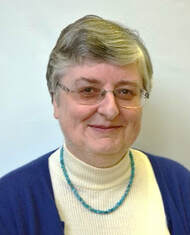 Associate Editor for Nutrition Dr. Sylvie Giger-Reverdin is working as a senior scientist for the French Research Institute in Agriculture Science (INRA), in the INRA-AgroParisTech Research Unit MoSAR (Systemic Modelling Applied to Ruminants), Paris, France. She graduated in Agricultural Science from the Institut National Agronomique Paris-Grignon (France), with specialization in Sciences and Engineering in Animal Science, Nutrition option and received a Master of Science in Nutrition and Feeding of domestic animals from the Paris VI University (France) in 1977. She obtained a Ph.D. in Agricultural Science from the Institut National Agronomique Paris-Grignon (France), with her dissertation titled “Influence of the composition of the concentrate on the nutritive value of diets fed to dairy ruminants.” Her main field of research concerns the nutrition and feeding of ruminants bred in intensive conditions, especially dairy goats, used as a model for dairy cattle. She has been especially involved in research on the nutritive value of concentrates, on the nutritive requirements of goats and on ruminal metabolism. For a couple of years, she has focussed on the effects of feeding behavior, and especially on the relationships between acidosis, feeding behavior and animal welfare in dairy goats. Dr. Sylvie Giger-Reverdin is an IGA member. |
IGA Blog
The International Goat Association promotes goat research and development for the benefit of humankind, to alleviate poverty, to promote prosperity and to improve the quality of life. Archives
May 2024
Categories
All
|
|
International Goat Association
2516 Millbrook Rd., Little Rock, AR72227 USA email: [email protected] -454-1641 |
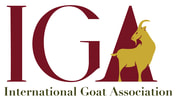
 RSS Feed
RSS Feed